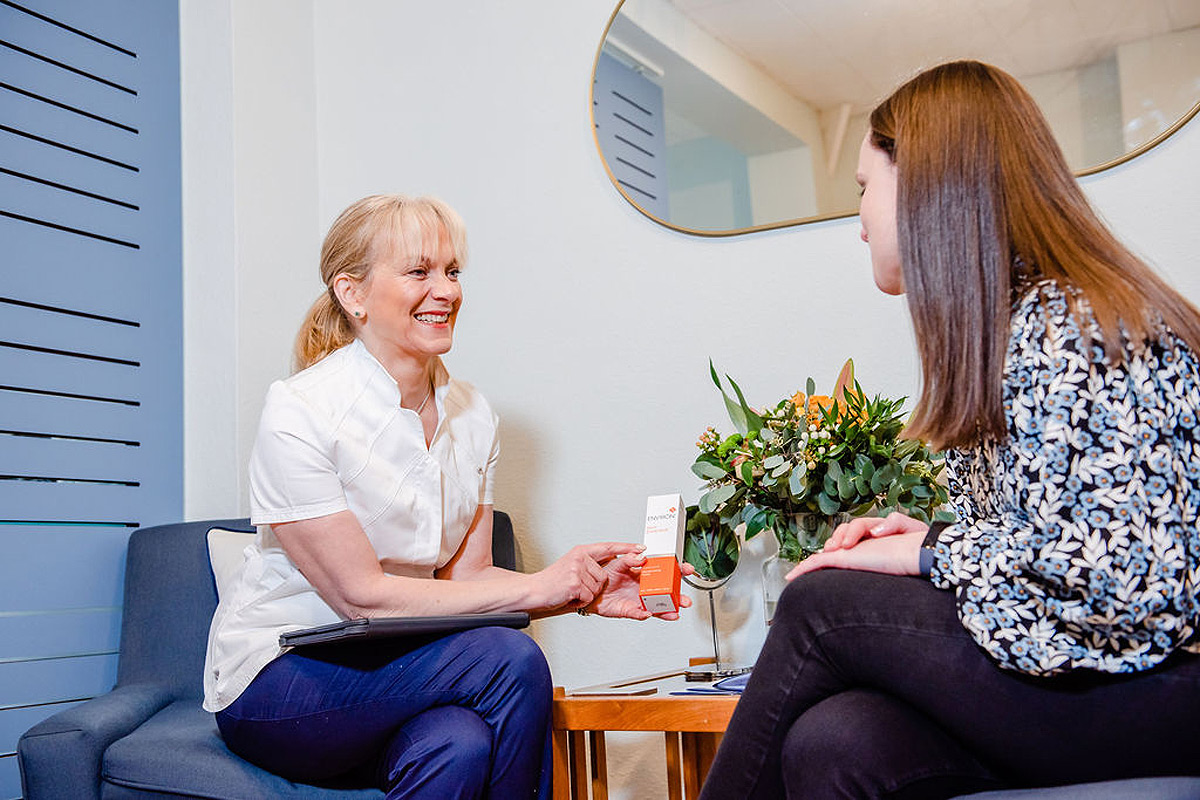What Is Retinol?
Retinol is a form of vitamin A, part of the retinoid family. It is often used in skincare for its anti-aging, acne resolving and skin-renewing capabilities. But it has so many functions in the skin, it’s nothing short of a ‘Super-Product.’
What Does Retinol Do?
Retinol is a multi-tasking powerhouse, providing several skin benefits:
It boosts Collagen production which helps reduce fine lines and wrinkles by improving the skin’s structure and strength. It speeds up cell turnover which encourages new skin cells to replace old ones, leading to a smoother and brighter complexion.
Retinol fades pigmentation by inhibiting the production of melanin reducing dark spots, sun damage, and post-acne marks. It unclogs pores, preventing dead skin buildup and therefore reducing breakouts. It can even refine skin texture, improving rough and uneven skin, leaving a softer feel. Retinol will also give UV protection; ironically most people think the opposite, but in truth a good quality daily vitamin A (Retinol) product can give UV protection. It can reduce inflammation and redness by normalising and repairing damaged skin cells. As we are continually exposed to free radical damage, Vitamin A is essential for repairing all those damaged cells.
How Does Retinol Work?
Retinol penetrates the skin and is converted into retinoic acid, the active form of vitamin A. This acid then binds to retinol receptors encouraging faster regeneration and increased collagen synthesis. Retinol works deep within the skin, making it highly effective. There are many forms of retinol and using products with more than one type of Retinol in will mean that more Retinol Receptors are stimulated, meaning improved results can be seen.
What Should You Look Out For?
Residents were also treated to a special carol concert from the children of St Nicolas School, as well as a 1940s-themed performance from The Ronnies.
Start Slowly – With a complete lack of regulation in this field, labelling on bottles often causes more confusion than help, 1% Retinol for example, means absolutely nothing to you or I, unless its backed up with a dilution figure, so you know what you’re getting 1% of. So don’t be fooled by silly, misleading information. Retinol can be highly active and therefore has the potential to irritate you skin if not used correctly. All Retinols should be started over a minimum four-week period and in most cases should only be applied at night. There are a few exemptions but on the whole evening application is recommended. Start with every other evening for two weeks, then step up to every evening. Always apply onto clean skin and after allowing a few moments for the Retinol to be taken into the skin add your moisturiser. Don’t apply Retinol without a moisturiser over the top, as this is much less likely to cause irritation. It is especially important to use a daily SPF whilst using Retinol as the initial increased cell turnover can impact your skins natural UV protective capabilities.
If you should start experiencing any negative symptoms, such as redness, itching, dry skin , this is known as a Retinoic reaction and whilst unpleasant is not usually anything to worry about, just go back a step in your regime, ie if you were applying every evening go back to alternate, or even twice a week and then slowly build back up once your reaction has settled.
Who Should Avoid Retinol?
Pregnant or breastfeeding women; whilst there is little evidence to back up that topical application of vitamin A can harm an upborn baby, the recommendation is to avoid.
People with a compromised skin barrier, ie Eczema should focus first on improving this outer layer with In-clinic treatments and Light Therapy, prior to commencing any at home Retinol treatment.
Anyone using strong exfoliants or having regular Dermaplaning, again due to a compromised skin barrier.
Finally, be careful when having any light based therapies or medical aesthetic treatments, for example, if you were having a skin peel or laser hair removal, you should stop your retinol at least 72 hours prior, but check with your medical practitioner for specific pre-treatment protocols. Also, when holidaying in a hot country it is safest to stop your retinol until your return.
Final Thoughts
Retinol is a gold-standard ingredient in skincare, but patience is key, any new skincare product will take up to 12 weeks to make noticeable changes to the skin. Combined with a good Vitamin C Serum for additional Free Radical protection, you will have a winning combination.
The key to successful Retinol use is slow introduction, low levels first, then step up and expect to have to go back a step now and then, especially if you get run down or try and step up too quickly.
For any advice on anything you’ve read today, please contact me at the clinic where I’ll be happy to help.
Get in touch on: 07890 575597 or visit: brewoodskinclinic.co.uk



